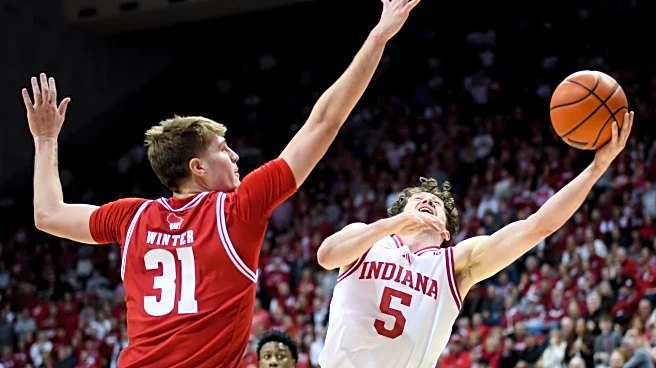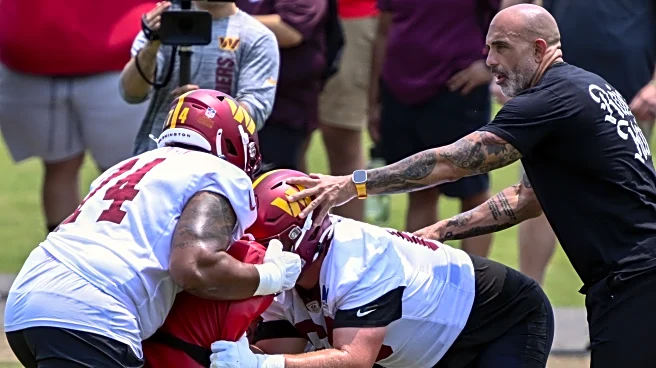What's Happening?
Retailers are increasingly extending sales events over multiple days or weeks to build momentum and maximize participation. This strategy, adopted by major companies like Amazon, Walmart, and Target, shifts focus from one-day flash deals to sustained
engagement. Amazon's recent four-day Prime Day resulted in record-breaking sales, demonstrating the effectiveness of this approach. According to Bill Schneider, vice president of product marketing at CommerceIQ, extending events has proven beneficial, with Amazon seeing an 18.6% sales growth year-over-year during Prime Day 2025. This trend is driven by competitive pressure and consumer behavior, as shoppers spread their activity over several days, creating more touchpoints for engagement and allowing brands to capture intent over time.
Why It's Important?
The extension of sales events is significant for the retail industry as it changes the dynamics of consumer engagement and purchasing behavior. By spreading sales over multiple days, retailers can increase traffic, conversions, and overall sales, while also enhancing brand storytelling and consumer interaction. This approach allows retailers to capture more revenue and attract new customers, providing them with value through extended shopping opportunities. However, it also poses risks such as margin erosion and increased complexity in inventory management. Retailers must carefully balance these trade-offs to maintain profitability and efficiency. The success of extended sales events indicates a shift in retail strategies, emphasizing sustained engagement over short-term urgency.
What's Next?
Retailers are likely to continue experimenting with extended sales events, as consumer engagement remains strong and the economic benefits are evident. Companies may further integrate supply chain management with marketing strategies to optimize inventory and media spend during these events. Smaller brands can leverage agility and focus on top-selling products to compete effectively. As AI and real-time bidding tools become more prevalent, retailers will need to adapt their strategies to remain competitive. The trend of extended sales events may become a new norm in retail, with major players like Amazon, Walmart, and Target leading the way in testing the limits of consumer engagement and economic viability.
Beyond the Headlines
Extended sales events may have broader implications for consumer culture and retail marketing. As these events become more common, they could influence shopping habits, encouraging consumers to plan purchases around extended sales periods. This shift may also impact traditional retail cycles, such as Black Friday, which has already expanded into a weeks-long season. The integration of AI and real-time optimization tools in retail strategies highlights the growing importance of technology in shaping consumer experiences and driving sales. Retailers that embrace these innovations may gain a competitive edge, while those that rely on traditional playbooks may struggle to keep up with changing consumer expectations.
















